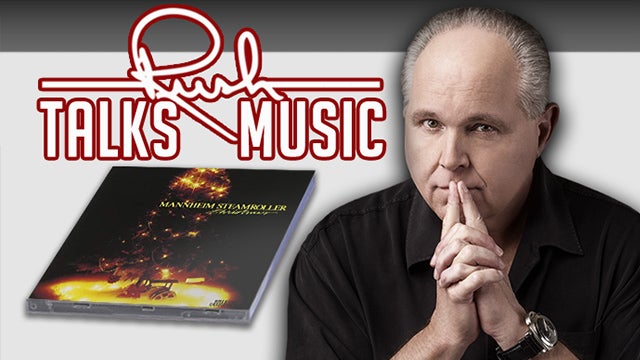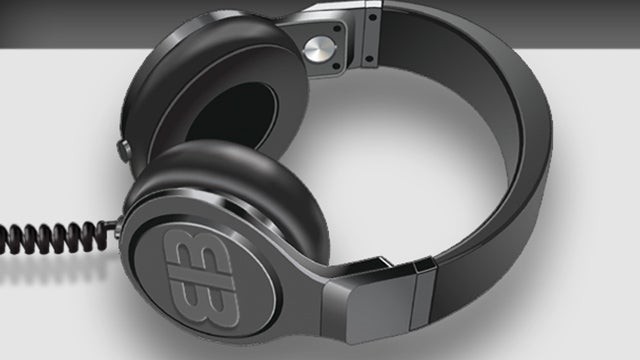RUSH: Here is Vaughan in Columbiana, Ohio. Great to have you on Open Line Friday. Hi.
CALLER: Good afternoon, Rush! How are you, sir?
RUSH: I’m doing well. Thank you much.

CALLER: Well, good. Mega dittos from a longtime listener since the early nineties. Hey, as I’m standing here lookin’ at the snow and contemplating the season, a question comes up that I could only ask you probably on Open Line Friday. So here goes. Back in the early or mid-nineties, you introduced your audience to Mannheim Steamroller, and I’ve amassed a collection of their Christmas music and just absolutely loved it. I’m about it year older than you, Rush, and, like you, I have come to acquire a fair amount of hearing loss.
Certainly nothing like you have, but I was able to mitigate it somewhat with conventional hearing aids that I’m able to control with a Bluetooth connection and that sort of thing. But it’s been evident over the years listening to your bumper music and the way you brought us Mannheim Steamroller and all that, that you’re a fan of good music. I’m wondering, with your cochlear implants, are you able to enjoy music at all like you used to be able to?
RUSH: Well, I can if it’s music that I knew before I lost my hearing.
CALLER: Okay.
RUSH: So in the case of Mannheim Steamroller, the way it works is I’m actually not hearing it. My memory is supplying memories based on the audio stimulation that I am getting. That’s why I can only listen to music and recognize music that I knew before I lost my hearing. Music that I’ve never heard before all sounds the same note. I cannot distinguish a low-piano note from a high-piano note, for example. Violins, strings sound like fingernails on a chalkboard to me. I need closed-captioning even to follow audio in a movie or TV show, because the music and the soundtrack will be so loud and distracting that without closed-captioning, I’ll never even hear 30% of what’s being said on any TV show.

But as to music, as long as you have your natural hearing and as long as it’s being amplified with hearing aids, you’re not gonna suffer anywhere near the type of loss of ability to enjoy music that somebody who has totally lost the their hearing will. You’ll still be able to hear it exactly as it was. You just may need to turn it up — and, depending on the nature of your hearing loss, you might lose the ability to hear certain frequencies high or low. But, again, your memory will take over. If it’s music you’re familiar with like Mannheim Steamroller, I predict that you’ll be able to get enough of it to thoroughly enjoy it like you always have.
CALLER: Hey, after hearing you describing the amount of hearing that you lost, you won’t hear me complain about mine. That’s a profound amount of hearing loss. I just have to tell you one quick instance and I’ll let you go. I vividly remember the first time you signed off… I think it was early Christmas Eve or the day or so before Christmas when you signed off the third hour and played Silent Night. That moved me to the point I had to pull off the road, and I want to thank you for that. So Merry Christmas, Rush. Thanks for taking my call.
RUSH: Well, you bet. Thank you. Thanks, Vaughan. Mannheim Steamroller’s version of Silent Night is all instrumental, which is what makes it all the more powerful, the way Chip Davis and his gang have been able to take an instrumental piece of music — and, as it plays, increase the power in the perception of the listener. The crescendo of that tune is what jerks the tears. So we always tried to back time so it ended specifically and precisely right at the end of a break. It was — and it still is. It is a piece of music that has a profound impact on the people who have heard it or even if you’re hearing it for the first time. Silent Night, Mannheim Steamroller. It’s one of the first or second Christmas albums, CDs. But again, Vaughan, thank you much. I appreciate it.


